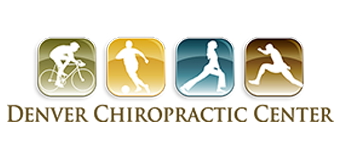Dr. Glenn gets beaten up (for real) & this week’s 1-page health news
My wife Meredith and I spent this past Saturday in a “Be Your Own Bodyguard” class taught by personal defense guru Tony Blauer at Crossfit Verve. This class is going to be re-branded as CrossFit Defense, and I can’t recommend it enough, especially for women. If you don’t mind foul language, google Tony Blauer and the SPEAR system for more info.
Meredith got a lot of hands-on practice, and after 10 years of marriage finally got a chance to give the 8-hour beating I probably deserve.
Next week is Thanksgiving week, as you know. We’ll be closing at noon on Wednesday the 21st and re-opening on Monday the 26th. This week is already nearly full, so if you need to get in and see us, call sooner rather than later.
Mental Attitude: Chew On This! People who maintain the ability to chew are less likely to develop dementia. This study shows a link between having no teeth and losing cognitive function more rapidly. The action of chewing makes more blood flow to the brain. People with few or no teeth will chew less, resulting in less blood flow to the brain. Journal of the American Geriatrics Society, October 2012
Health Alert: Younger Adults and Strokes? Stroke is becoming more common in younger adults. The reason may be an increase in risk factors like diabetes, obesity, and high cholesterol. Strokes among those under age 55 grew from around 13% in 1994 to 19% in 2005. Neurology, October 2012
Diet: Omega-3 Intake & Young Adults. For the first time, scientists have studied the effects of Omega-3 supplementation on young adults (ages 18-25). After 6 months of supplementation, subjects were able to improve their working memory (used for reason and comprehension) despite the belief that, at their age, they were operating at their cognitive best. PLoS One, October 2012
Exercise: Take A Hike For Your Heart! Going for a hike, a jog, or taking a brisk walk every day could reduce your risk of a heart attack or stroke by 50%. Researchers found that people who jog or who walk briskly have a lower risk of cardiovascular disease than those who lead more sedentary lives, or who walk at slower speeds. British Heart Foundation, October 2012
Chiropractic: Pregnancy and Back Pain. Approximately 60% of pregnant women suffer from back pain; however, only about 30% report symptoms to their prenatal provider and only 25% of providers recommend treatment. A review of 17 pregnant women who sought chiropractic care for back pain found 16 of 17 women demonstrated clinically important pain improvement within 4.5 days of seeking care, with no adverse side effects. Journal of Midwifery & Women’s Health, January-February 2006
Wellness/Prevention: What Can I Do? According to Leon Chaitow, ND, DO, “Even if conventional medicine tells you that your condition is incurable or that your only option is to live a life dependent on drugs with troublesome side effects, there is hope for improving or reversing your condition.” There are many things we can do to stay healthy and overcome illness once we become ill. The benefits of an excellent diet, a strong exercise program, getting proper rest, and a strong mental attitude (which includes stress reduction) have been studied endlessly with positive results. Being healthy almost always improves your overall body function and decreases your risk of becoming ill.
Quote: “I have chosen to be happy because it is good for my health.” ~ Voltaire
